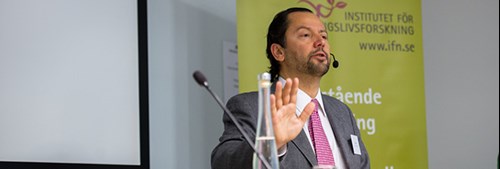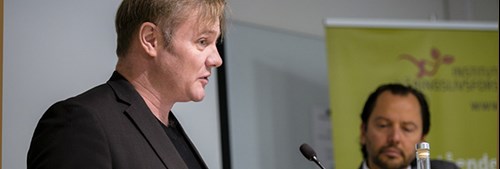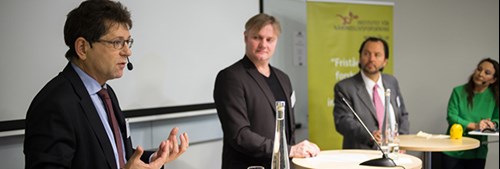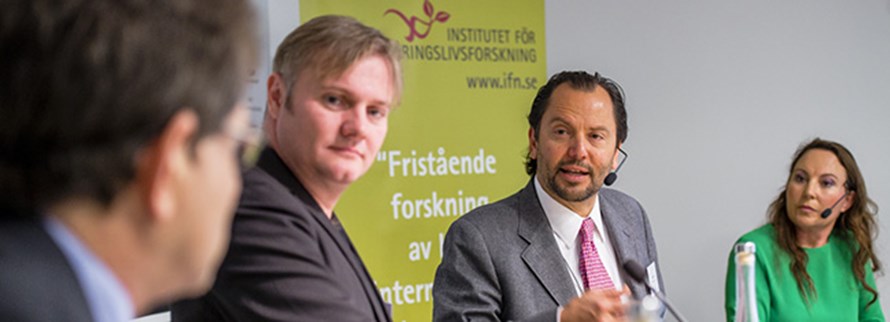In the picture from right: Cecilia Garme (moderator), Luigi Zingales, Christian Bjørnskov and Magnus Henrekson. Photo: Karl Gabor.
Crony capitalism often favors large companies but generally not the individual, says Luigi Zingales. What we need, according to him, is a free market rather than to adapt to individual business interests. It's more about being pro-market than pro-business, he said at the seminar in Stockholm. He argued that when interest groups are trying to influence decision-makers to secure special interests democracy is corrupted.

The seminar in Stockholm with Luigi Zingales was popular and well attended. Photo: Karl Gabor.
Luigi Zingales illustrated, with a metaphor, disadvantages of subsidies to businesses:
“In [national] parks in the US you have signs reading: Do not feed the wild animals. Underneath it’s explained that if they are given human food they lose their ability to gather food in the wilderness and cannot survive on their own. Clearly these signs were not written by the animals … We ought to have a similar note in parliaments in every major city, saying “please don’t feed business”. It is precisely because I love businesses that I don’t want it to get used to these sorts of subsidies. Because these subsidies will make businesses unable to compete in the long term.”
 Luigi Zingales, photo: Karl Gabor.
Luigi Zingales, photo: Karl Gabor.
Christian Bjørnskov, Professor at the University of Aarhus, agreed with Luigi Zingales about the diagnosis but was more hesitant about the suggestion to eliminate all subsidies, and to replace these by so-called Pigouvian taxes. The tobacco tax is an example of such a tax, which aims to transfer society’s costs for smoking to the consumer.
“What are we going to do about subsidies? Politicians think that the system we have is good. And they have created it; therefore it is difficult to change. The system gives politicians the power they want, said Bjørnskov.
 Christian Bjørnskov, photo: Karl Gabor.
Christian Bjørnskov, photo: Karl Gabor.
Magnus Henrekson, professor and president of IFN, was the next commentator at the seminar. He brought the Swedish settings into the discussion. He explained how the privatized part of the Swedish educational system works:
“Since the 1990s, schools can give basically what grades they want and thus, we have grade inflation. One wonders why the private investors who founded private schools did not realize it would be in their best long-term interests to lobby for external examinations and inflation safe and equivalent grading. In this way, they would have guaranteed good quality, and improved school performance. Instead school results have declined from year to year.”
 Magnus Henrekson in the foreground, photo: Karl Gabor.
Magnus Henrekson in the foreground, photo: Karl Gabor.
As a result of this neglect by the private investors who founded private schools, according to Magnus Henrekson is that Sweden today has a government that want to limit the possibility to cash out profit in schools and other businesses in the welfare sector. And this is, according to him, an unfortunate development.
In the discussion Luigi Zingales said that it should be pretty easy to curb grade inflation: Let an independent organization create and grade standardized tests.

